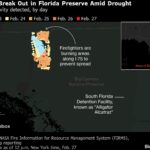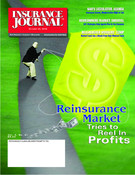Be prepared.” Personal lines agents would do well to take that time-tested Scout motto to heart during these troubled times in the Texas homeowners market. Already inundated with calls from folks who are having a hard time finding coverage for their homes in a tightening market, independent agents may find themselves overwhelmed should Farmers Insurance Group of Companies go through with plans to exit the market altogether in November.
David VanDelinder, executive director of the Independent Insurance Agents of Texas (IIAT), has no intention of leaving his member agents, or homeowners for that matter, out in the cold when it comes to cover for their homes. The IIAT has several initiatives in the works and plenty of advice for agents and consumers alike for handling the increased business, and finding and placing coverage.
VanDelinder said one of the most important things an independent agent should have is a surplus market that writes an acceptable form of homeowners coverage. And the numbers seem to bear him out. “Agents report to us that anywhere from 20 to 30 percent, depending on the agency location and some other factors, of new business is going in surplus markets,” he said. “Either because of previous water damage claims on the risk or credit score problems. Those seem to be the two reasons that most people are not getting renewed or are having trouble finding another company.”
Figures compiled by the Surplus Line Stamping Office of Texas (SLSOT) show that as of September 30, 2002, surplus line carriers recorded a 90.7 percent increase in premium in the multiple peril homeowners line over the same period the year before. Texas surplus carriers collected $62,846,383 in premium through the end of September 2002 compared with $32,950,465 at the end of September 2001. The third quarter numbers represent a further increase, percentage-wise, than was shown in the figures for the end of the second quarter. As of June 30, 2002 surplus lines carriers recorded $33,069,999 in homeowners premiums, which was a 70.4 percent increase over the $19,409,679 recorded for the first six months of 2001.
That said, it is necessary to note that surplus lines are not without pitfalls. VanDelinder stressed that agents and homeowners need to be aware that surplus lines are not protected by the state’s guaranty fund. “Be sure you’re dealing with a financially sound surplus company,” VanDelinder said. “Fortunately most of them coming forward to write homeowners insurance have ‘A’ ratings or better, so they’re pretty well financed. When you shop in surplus markets that financial condition becomes all important.
“Be aware that there’s a tax on the premium that the customer will have to pay in addition to the premium and that should be quoted along with the premium,” he explained, adding that in the standard markets the insurance company pays the premium tax to the state. In the surplus markets, however, it is collected from the customer and passed on to the state.
The IIAT is also advising agencies to do some preparatory work in order to handle the influx of customers. Agents “need to—we call it ‘triage’—the people that they are getting calls from and people that are walking in the front door by getting them to complete some basic information that tells them how they might qualify for the markets,” VanDelinder said. “Some agencies, for example, don’t want to deal with surplus companies so in that case you need to quickly pre-qualify that customer and tell them whether you can or can’t handle their business.” Being able to determine on the basis of a small amount of information whether the agency can provide a market for a particular customer is important, he added.
“One of the agencies that’s done the best job at this I think is … Focus Insurance … in Houston. A couple of agencies went together to create this personal lines agency called Focus Insurance and Financial Services,” VanDelinder said. “They’ve got a button on their home page that says ‘Farmers customers click here.'” It takes the customer to a short online form that can be reviewed quickly by the agency. The agency can then “contact that person immediately and say ‘yes we might have a market for you or no we don’t.'” He added that the process “works pretty well,” eliminating a lengthy application procedure that may in the end reveal that the customer can’t be served after all.
VanDelinder said that a survey of IIAT members who write personal lines reveals that 92 percent of them are ready and willing to write homeowners business, including Farmers business. “When this proposal from the Commissioner (Jose Montemayor) to expand the windstorm pool came about, we quickly surveyed our members by broadcast fax. We have about 1600 members—you eliminate those who don’t write any personal lines—you’re probably talking about 1400, maybe 1300. … We got 702 responses in three days … it was a very hot issue with our members. We simply asked them if they were writing homeowners insurance.”
He continued: “So we took that to the Commissioner as one of our arguments for going slow on the residual market mechanism because there may be enough capacity in the marketplace to pick up this Farmers business. He was very impressed with the data.”
To help connect agents with customers and vice versa, the IIAT recently launched an online resource called FIND AN AGENT. The free resource is available on the association’s Web site at www.iiat.org, and contains a database of independent insurance agencies that are actively writing homeowners insurance policies. The IIAT has also posted on its Web site a number of other resources for consumers shopping for homeowners insurance, including a series of tips to help shoppers get the best deal.
With the FIND AN AGENT tool, consumers can select either independent agencies writing homeowners insurance or a complete list of IIAT member independent agencies by city or ZIP Code. The results include agency name; phone numbers; and mail, physical and Web addresses.
The FIND AN AGENT database will be linked to the Texas Department of Insurance’s consumer-oriented Web site, www.helpinsure.com. VanDelinder said that will be a boon to consumers because they will be directed to a database of agents who are writing, and have markets for, homeowners insurance.
VanDelinder believes that through these resources—TDI’s helpinsure and the IIAT’s FIND AN AGENT—shoppers for homeowners insurance are finding out that “there are other avenues beside the top three captive companies.” He noted that Texas has a market share deficit when it comes to independent agents. “In 2001 independent agents in Texas wrote 17.2 percent of the market and countrywide they write an average of 36 percent,” he said.
He predicted that “if Farmers stays out of the homeowners business we’ll more of them (Farmers agents) make the transition to independents. They did last year, quite a few of them, this may drive some more that way and we’re prepared to welcome them with open arms.”
VanDelinder said rates in Texas would remain high compared with other states because of Texas’ recurring catastrophe exposures, but he expressed the opinion that with the increasing flexibility in forms being allowed by TDI, companies are beginning to see that they can make money in the homeowners market. “Many companies, right now, when we talk to them behind the scenes they will tell us ‘we’ve got the form we want’—because the commissioner’s approving their forms—and, ‘we’ve got the rate we want.'”
Still, the uncertainty of what will happen when the legislature convenes remains a cloud hanging over the market. “I think it’s going to be difficult to retain the unregulated Lloyd’s environment that we’ve enjoyed,” VanDelinder said. “Most likely there’ll be some form of rate control put on the companies and the question is what kind of control that will be, how onerous it will be. I think they’ve got the forms where they need them … and that’s probably the most important issue to the carriers—that they can use their own forms. But they’re going to need the rate freedom to respond to the situations that occur.”
To comment on this story e-mail sjones@insurancejournal.com
Topics Texas Agencies Excess Surplus Agribusiness Homeowners
Was this article valuable?
Here are more articles you may enjoy.


 Georgia Insurance Law Is About to Get an Upgrade With Multiple Changes
Georgia Insurance Law Is About to Get an Upgrade With Multiple Changes  ‘Meaningful Decline’ in Industry Q1 Underwriting Profit Expected From Winter Storms
‘Meaningful Decline’ in Industry Q1 Underwriting Profit Expected From Winter Storms  Florida Appeals Court Pulls the Plug on Physician Dispensing in Workers’ Comp
Florida Appeals Court Pulls the Plug on Physician Dispensing in Workers’ Comp  Deep Freeze and Drought Fueled a Massive Florida Wildfire
Deep Freeze and Drought Fueled a Massive Florida Wildfire 


